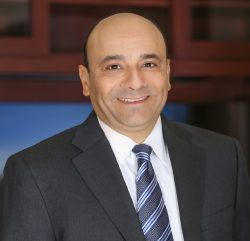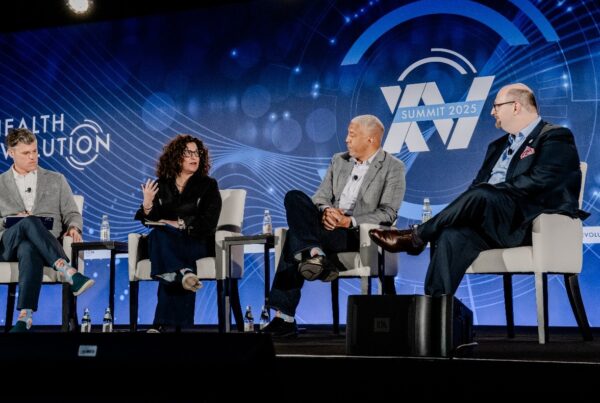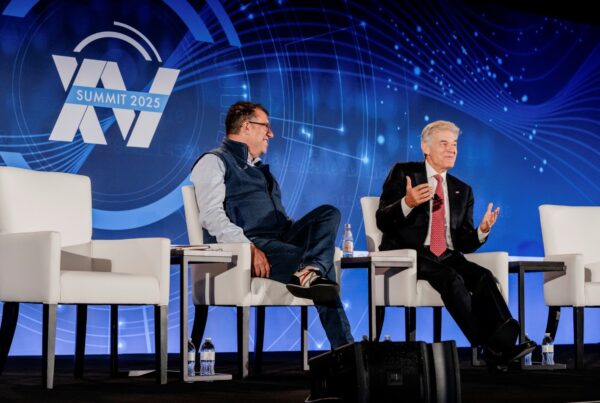“Republicans buy sneakers too.”
Michael Jordan’s supposed quote on politics defines how a number of business and health care leaders had traditionally felt toward speaking out on polarizing topics. While it’s unclear Jordan ever actually said those words, his actions for a period of time were clear cut: It’s not worth angering half of your customers by taking a stand on social issues. Your politics isn’t your organizations’ politics.
Of course, recently, Jordan has been more outspoken on divisive topics, with both his words and his wallet. The basketball legend’s 180 represents a larger changing shift in opinion on how employees and society at large views the CEO’s role in speaking out on socially important issues.
In a recent survey of the global workforce, Edelman found that 92 percent of employees say CEOs should speak out on issues of the day. Three-quarters of respondents say CEOs should take the lead on change instead of waiting for government to impose it. Weber Shandwick has similarly done research in this area and found that activism is becoming something employees expect of their leaders.
“People are looking to you as a leader and people are looking to you when asking the questions, ‘What’s best for society and our community?’ Not just what’s best for the businesses you lead,” says Umass Memorial Health Care CEO Eric Dickson, MD.
Perhaps it’s this mentality that led Merck CEO Kenneth Frazier to resign from President Trump’s business council after his comments about Charlottesville. It also may be the mentality that Northwell Health CEO Michael Dowling has when he took out an ad in The New York Times, describing gun violence as a public health crisis. Northwell has committed $1 million toward gun violence prevention and urged other health care CEOs to follow his lead.
“Gun violence is a national tragedy and public health crisis that demands we use our political capital and advocacy. Health care CEOs and the 18 million men and women who are part of the nation’s health care workforce can be an incredibly powerful voice for change,” Dowling wrote in the letter.
Outside of health care, there have been pertinent examples as well: Salesforce CEO Marc Benioff, Patagonia CEO Rose Marcario, PayPal CEO Dan Schulman and many others. Just last week, Amazon CEO Jeff Bezos made a $10 billion commitment to climate change—a move that has drawn critics from both sides of the political spectrum.
The CEO who supports Medicare for All
Umass Memorial’s Dickson is no stranger to making waves for having a controversial stance—especially among his fellow CEOs. In December of last year, Dickson stood up in support of Medicare for All. This kind of belief is rare in most CEO circles, never mind in health care. When you add in the factor it’s an election year and this is one of the most divisive issues on the campaign trail, it’s a surprise he would say anything at all.
To Dickson, his open support for Medicare for All comes from a belief that it’s best for his community and the country’s larger health care problems.
“When you’re put into the role of CEO, you have fiduciary obligations to your organization. And as policy changes and possible things come out, everybody’s first reaction is ‘What’s best for my organization?’ Instead of stepping back and saying, ‘What’s best for society as a whole?’ Sometimes you’re conflicted with – this may not be good for UMass Memorial Healthcare or the organization I lead vs. what is best for society. This is one of those things. Medicare for All, as it’s designed and as people talk about it, might be bad for UMass Memorial Health Care, but I think it’s the right thing for society,” says Dickson.
Michael Apkon, MD, CEO of Tufts Medical Center, another Massachusetts-based CEO, has also spoken out about health care policy and his frustrations with the current system, through an op-ed in The Boston Globe and an interview with WBUR.
Apkon, who spent four years as the CEO of the Hospital for Sick Children in Toronto, revealed in the op-ed that administrative costs to maintain a health care organization in the U.S. are approximately 50-fold higher than in Canada. While he didn’t advocate for government-run health care, he said he doesn’t think the market can solve all the problems of this system.











